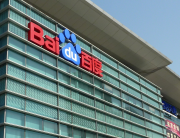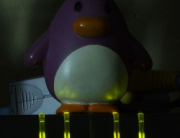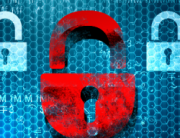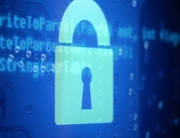Penguin 2.1 was launched on Friday 4th October 2013 and has a few people scrambling asking what has changed and how does it tie in with the Hummingbird update.
Well, in short, Hummingbird is independent and nothing has really changed with this Penguin algorithm update compared to the last Penguin updates.
We have seen, in the industry, websites who have gone through the link removal process and had manual penalties revoked have seen their sites penalised again with Penguin 2.1. We also have an example to share.
A potential customer enquired for services this week and explained they launched their site earlier in the year and wanted to get rankings quickly for location based keywords. We reviewed their linking profile and we could see that they had gone out and engaged in some really poor linking practices. Some things that really stood out were a number of exact match keyword anchor texts linking from forum websites, high volume of exact match anchors in the linking profile with not enough brand mentions, and really poor quality directory submissions.
At Blue Ocean Search we do not buy any links. Our focus is on quality of content and dissemination of that content through multiple channels, as it should be in any form of quality marketing. Hummingbird ties Panda, Penguin, quality content and search intent together. What Google are effectively saying is you should have great unique content that should be geared towards a searchers requirements and intent, not designed for gaming the search engines to rank higher. Practices such as article spinning and link buying are all gaming tactics, these days are over.
We work on acquiring links from sites that will deliver us value in terms of quality visitors, we do not chase links from page rank or followed linking locations. So if a site is a PR3 but is about Barbie dolls then a link to an SEO website is not beneficial to their followers, so we are not going to chase it just for the page rank.
By way of update, it’s important to list the types of links to avoid. Some link types are OK in moderation and where beneficial to viewers, such as press release and article directories. I stress the points relevance and in moderation, again.
Linking Methods to Avoid
Here are the linking methods that should be closely managed or avoided
Low quality directories
De indexed websites
Paid Links
Advertorials
Forum links
High proportion of links from the same C class IP addresses
High proportion of exact match anchor texts in the overall profile
Low proportion of brand anchor texts
High proportion of footer links
Also it must be said in regards to anchor texts, this should be a contingent decision based on where links are. So if you have a website that has multiple exact anchor texts for your target keywords then are these from websites where people have placed them because it is relevant to their users and had no request from you to place it? If so then these are generally fine (Check the site in Alexa for good traffic stats, check the site is indexed, and check the site has visitors that will find your content useful). However if these links are on website where you have placed them then you have to ask, “what is the natural anchor text to use?”. This is where people are going wrong, they are linking their target keywords as the anchor text and not the brand – the brand name is the natural anchor text links, not the name of the product you sell.
Manual and Algorithmic penalites
Just to clarify the difference between manual and algorithmic penalties, an algorithmic penalty is where your site has been penalised by the algorithm (obviously) and the algorithm has found that the site is compromising Google’s guidelines. A reconsideration is therefore not required, what is required is to clean up your website, both on and off page, and wait for Google to reindex it.
Manual penalties are where you receive a notification in Google WMTs and you can clean up your links and submit a disavow and reconsideration.
This is the fifth Penguin update, the dates of them are as follows
Penguin 1.0 – 24th April 2012
Penguin 1.1 – 26th May 2012
Penguin 1.2 – 5th October 2012
Penguin 2.0 – 22nd May 2013
Penguin 2.1 – 4th October 2013
This update affects approximately 1% of search results.









